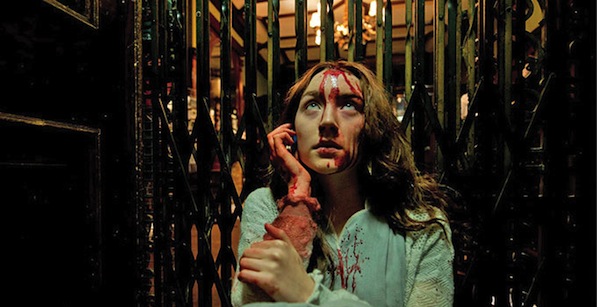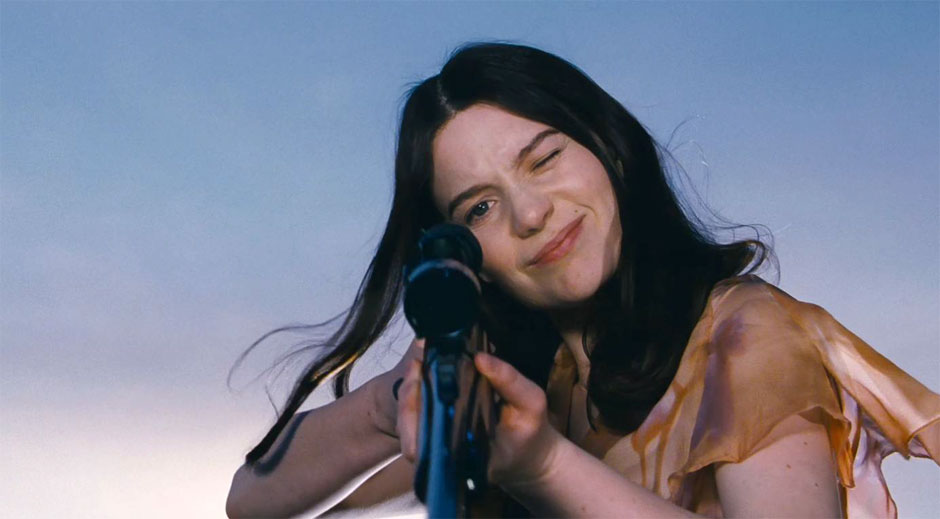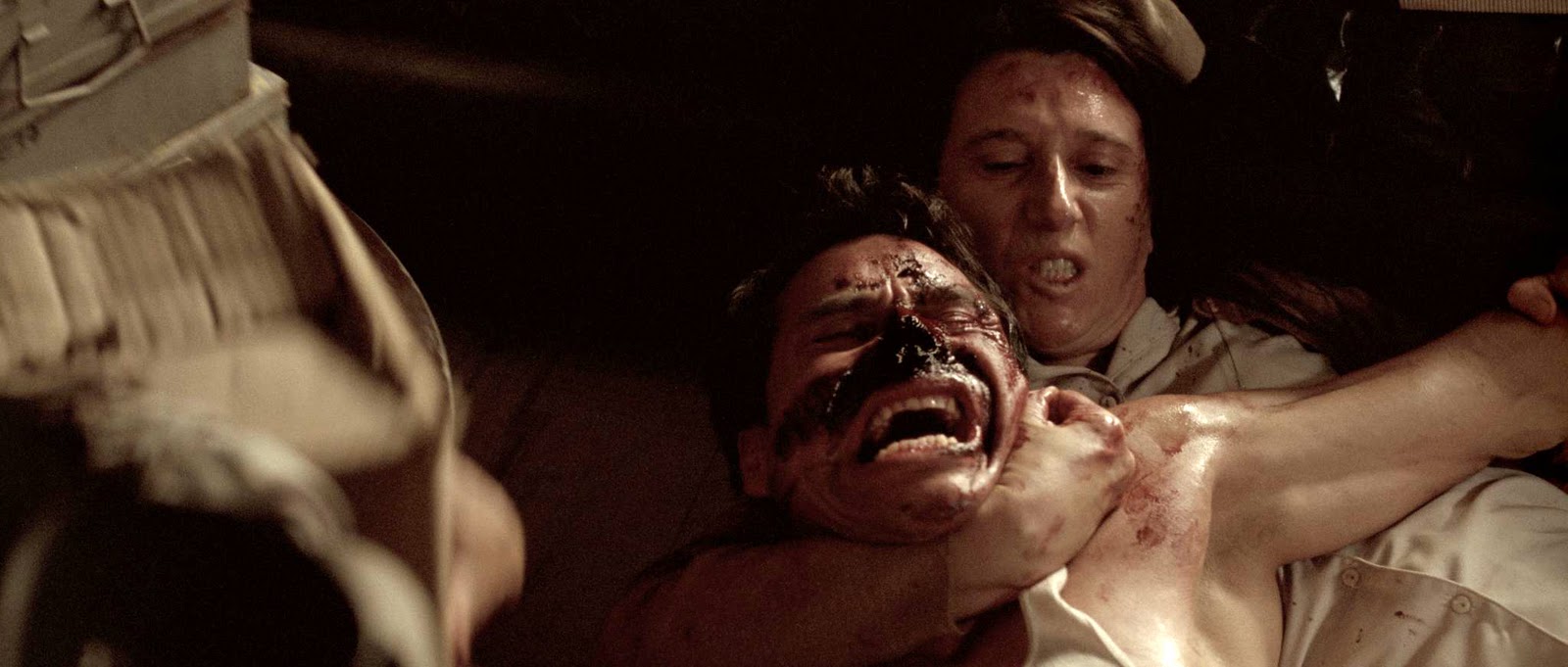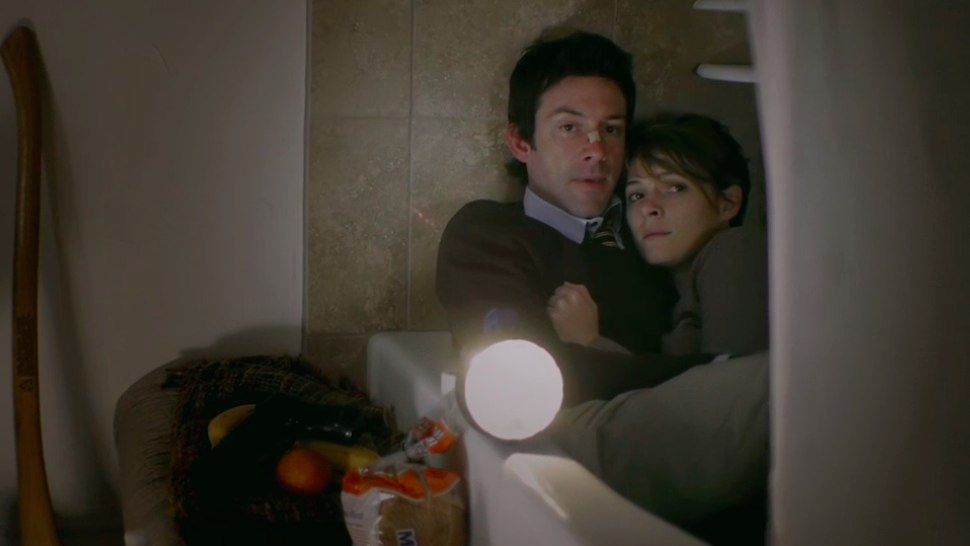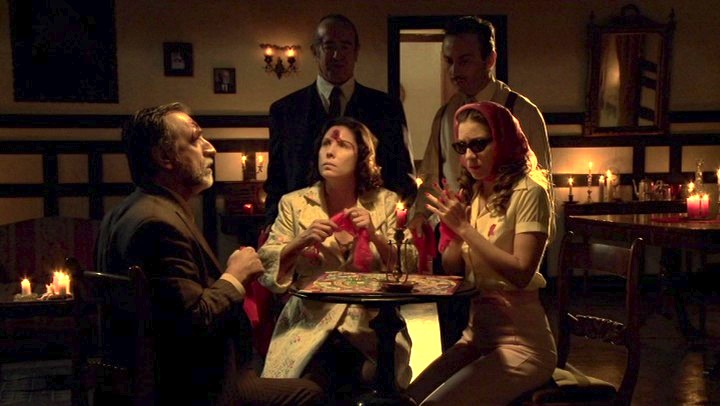I love genre films: horror, science fiction, heist films, con games, crime thrillers, all those modes that entice audiences with a promise of familiar tropes and unexpected twists. Back in my high school days it was pure fan adoration and during my college evolution I embraced the subversive subtexts and mythic explorations. Today I’m a bit more discerning but no less charmed by a fresh take on or a spirited revival of a familiar genre. Those first loves never leave you completely.
Ironically, as the entertainment industry has promoted once unrespectable genres into blockbuster events, I find myself less satisfied than when they existed largely as filler to studio schedules or the domain of upstarts and exploitation producers. They weren’t always good, let alone great, but the possibility of being surprised always brought me back to find the next Terminator or Near Dark or Cronos. The budgets are bigger and the spectacle more lavish in the Star Wars and Harry Potter and Twilight and Hobbit franchises, but we’ve lost the quirks and creativity in the homogenization and gentrification of what were once outliers.
But the outliers are still there. They’re just harder to find amidst the smothering promotional campaigns of the franchises that devoured Hollywood. Here are some of the pleasures I found between the tentpoles.
With vampires becoming so fashionable it’s refreshing to find something as unsettling as Stoker, the American feature debut of Park Chan-wook. It plays like a vampire movie without a vampire. At least not in the mythic sense of the term. Mia Wasikowska is dreamy and uneasy as a teenage girl preternaturally attuned to the world and Matthew Goode is creepily calm and seductive as her Uncle Charlie. Yes, it’s an offhanded reference to Hitchcock’s take on another dark uncle-niece relationship but she’s no small town innocent. Park sculpts the film beautifully, throwing the literalness of Wentworth Miller’s original screenplay off balance with every shot. There is blood and brutality and the icy threats under silent intimidation, but done with such elegance and eerie suggestion that it feels like a dream. Or an awakening.
Byzantium takes an altogether different approach to a world where vampires lurk, not exactly feminist but rooted in sexual politics and male control, and Neil Jordan plays with tropes of the female vampire as icy seductress. Gemma Arterton is like a tigress protecting her cub from a hunting party of male predators. And Saoirse Ronan is another haunted teen, a fragile-looking, melancholy angel of death. No wooden stakes or fangs here (they draw blood with claws). Jordan roots it something primordial, an ancient ritual that taps the lifeline of the very Earth itself and sends it bleeding down the black rocks of forsaken island, like the sacrificial altar of a primeval temple. It really is a gift and a curse.
Not quite as evocative or rich but still interesting is Vampire, the English language debut of Japanese director Shunji Iwai. This isn’t about feeding off of blood, it’s about feeding off of loneliness and the release of death. It’s a spare, almost dour production, with scruffy sound and homely settings and the perpetually overcast weather of a Pacific Northwest stereotype, but it sure captures an atmosphere of despair with victims hungry for any kind of sustenance in a wanting life.
Jim Mickle’s We Are What We Are, a remake of the Spanish horror film of the same name, is unexpectedly intimate and poignant, and not just for a coming-of-age drama about a family of cannibals living in isolation in rural America. This is an existence with one foot in the hardscrabble frontier traditions of a knotty past and the other grudgingly planted in the present, like a severe religious sect holding back the corruption of modern life from the purity of its unyielding practices. It’s genre as metaphor at its best, and even more importantly a very human story of growing up and yearning to be like everybody else in culture that demands strict obedience.
Shane Carruth turned the time travel film inside out with Primer, using conceptual ingenuity to overcome budgetary limitations. He made Upstream Color on a somewhat bigger but still limited budget (it’s rumored to have cost less than $100,000) when other projects fell apart and once again turns a story inside out in a telling that favors the subjective and the textural. It’s like watching a cerebral science fiction heist film by way of a biological horror—think schizophrenia as a parasitical infection, Cronenberg territory but with the icky body horror cut out along with all the exposition. The why and how is a mystery but the experience is indelible.
Danny Boyle’s Trance is a heist movie as a literal mindgame: a hypno-therapist delves into the mind of an amnesiac robber with her own agenda. The twists and contrivances are aggressively absurd, but it sure is entertaining: an arthouse heist film with a psychological twist and a con-artist’s soul. Hypnotic suggestion, sex, dream symbols, and physical confrontation bounce off each other in unexpected ways as the psychodrama slips between cerebral mystery and psychological confidence game, and this is the only movie I’ve ever seen where full frontal female nudity is actually a key plot point.
I conclude this celebration with a fresh take by an old maverick on that most conventional of dramas: the aging artist taking stock of a life. Night Across the Street, the final feature from Raul Ruiz, reimagines autobiography as a remembrance of things imagined, communing with the fictional friends met through books and movies and music, while scripting his own exit right out of the pulp fictions of his youth. It’s quintessential Ruiz, filled with swirling motifs and stories within stories, past merging with the present, and memories and imagination communing with reality. Life is just another story and the meaning is all in the telling. A fitting epitaph for Ruiz.
For the complete list of year-end lists on Keyframe, go to The Year in Film: 2013.
For the complete index of the films on these lists, go to 2013 Year in Review: Indexed.

